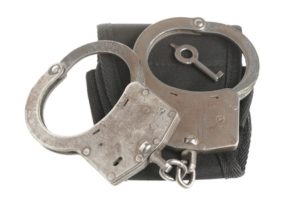 The Supreme Court majority continued: And cases Mr. Currier cites for support, e.g., Harris v. Washington, 404 U. S. 55, merely applied Ashe’s test and concluded that a second trial was impermissible. They do not address the question whether the Double Jeopardy Clause prevents a second trial when the defendant consents to it. Mr. Currier contends that he had no choice but to seek two trials, because evidence of his prior convictions would have tainted the jury’s consideration of the burglary and larceny charges. This is not a case, however, where the defendant had to give up one constitutional right to secure another. Instead, Mr. Currier faced a lawful choice between two courses of action that each bore potential costs and rationally attractive benefits. Difficult strategic choices are “not the same as no choice,” United States v. Martinez-Salazar, 528 U. S. 304, 315, and the Constitution “does not . . . forbid requiring” a litigant to make them, McGautha v. California, 402 U. S. 183, 213.
The Supreme Court majority continued: And cases Mr. Currier cites for support, e.g., Harris v. Washington, 404 U. S. 55, merely applied Ashe’s test and concluded that a second trial was impermissible. They do not address the question whether the Double Jeopardy Clause prevents a second trial when the defendant consents to it. Mr. Currier contends that he had no choice but to seek two trials, because evidence of his prior convictions would have tainted the jury’s consideration of the burglary and larceny charges. This is not a case, however, where the defendant had to give up one constitutional right to secure another. Instead, Mr. Currier faced a lawful choice between two courses of action that each bore potential costs and rationally attractive benefits. Difficult strategic choices are “not the same as no choice,” United States v. Martinez-Salazar, 528 U. S. 304, 315, and the Constitution “does not . . . forbid requiring” a litigant to make them, McGautha v. California, 402 U. S. 183, 213.
Justice Gorsuch, joined by Chief Justice Roberts, Justice Thomas, and Justice Alito, concluded in Part III that civil issue preclusion principles cannot be imported into the criminal law through the Double Jeopardy Clause to prevent parties from retrying any issue or introducing any evidence about a previously tried issue. Mr. Currier argues that, even if he consented to a second trial, that consent did not extend to the relitigating of any issues the first jury resolved in his favor. Even assuming for argument’s sake that Mr. Currier’s consent to holding a second trial didn’t more broadly imply consent to the manner it was conducted, his argument must be rejected on a narrower ground as refuted by the text and history of the Double Jeopardy Clause and by this Court’s contemporary double jeopardy cases, e.g., Blockburger v. United States, 284 U. S. 299; Dowling v. United States, 493 U. S. 342. Nor is it even clear that civil preclusion principles would help defendants like Mr. Currier. See, e.g., Bravo-Fernandez v. United States, 580 U. S. ___, ___. Grafting civil preclusion principles onto the criminal law could also invite ironies—e.g., making severances more costly might make them less freely available.
Justice Kennedy concluded that, because Parts I and II of the Court’s opinion resolve this case in a full and proper way, the extent of the Double Jeopardy Clause protections discussed and defined in Ashe need not be reexamined here. Justice Ginsburg filed a dissenting opinion, in which Justices Breyer, Sotomayor, and Kagan joined.
This is another example of a 5-4 opinion that went against the defendant. Close cases like this highlight the impact of elections on our nation’s rules of criminal law and procedure. Had President Obama’s nominee gained a seat on the Court instead of President Trump’s nominee, Justice Gorsuch, the result of this case would have likely been different.
